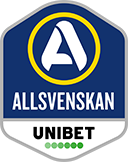Every year, Swedish Professional Football Leagues (SEF) performs a certification of the member clubs connected to Unicoach and their youth academies. All club youth activities are analyzed in order to develop Swedish elite football.
The club developers of Swedish Professional Football Leagues Thomas Hasselgren, Thomas Westerberg, Hans Lindbom, Jimmy Högberg and John Wall visits the clubs and the clubs responsible for youth academies or equivalent.
All clubs gets a score based of the club work regarding values, player education, coach education and organisation, facilities, school cooperation, club cooperation and sport results. The club gets a total score and an amount of stars, 1-7, depending on how well they are doing. The amount of money each club gets depends on how well they are doing.
Background
The certification is a long-term work where the elite clubs’ youth activities are evaluated annually.
The work with the certification started in 2010, with ideas from the Elite project, to focus on the club’s activities for players aged 8-19. The overall goal of the project is to create future elite players. Since 2014, clubs outside SEF have also been offered participation.
Ahead of the start of the 2020 season, the SEF clubs got a new partner in Unibet and the concept thus changed its name to Unicoach. Ahead of the 2022 season the certification model changed to the certification model being used today.
Certification exists to:
– quality assure the clubs’ work with player training between the ages of 10 and 19
– identify the clubs’ own development areas
– support and engage in dialogue with the clubs’ own development work
– create a stimulating manual for the participating associations
– create clarity towards the board, sponsors, players, parents, other clubs, municipality etc.
– make it easier for the association to identify its role within Swedish football
– emphasize player training and leadership training as the most important factors
– Raise the quality of player training in an international perspective
– The certification must be a living document and constantly challenge and evaluate. Changes to the certification model must first be analyzed and decided in the academic management group






